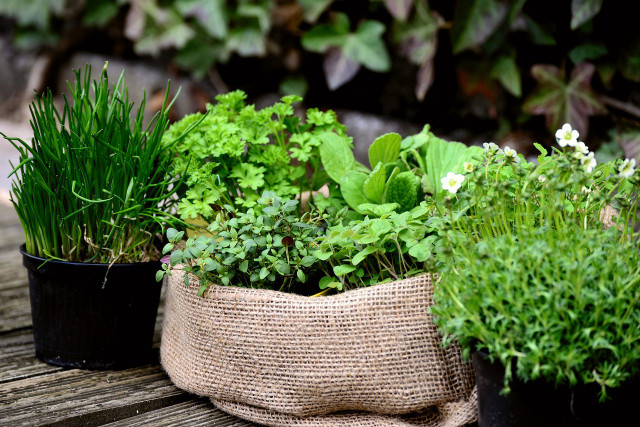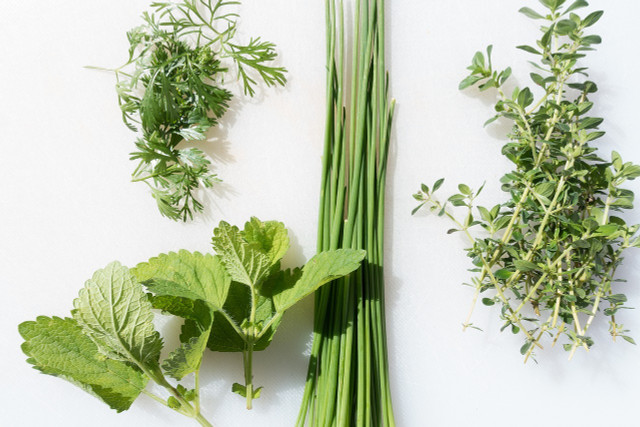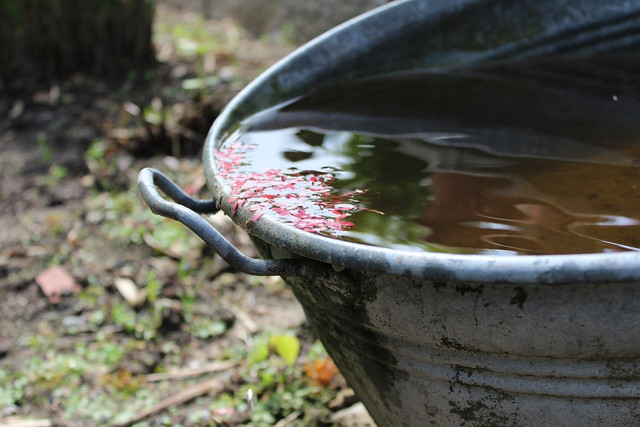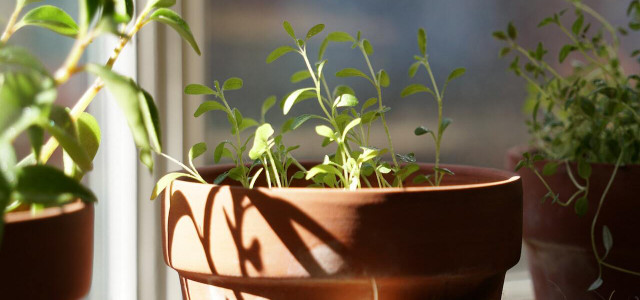Want to start growing your own herbs but lack outdoor space? Learn how to make a window herb garden to grow and enjoy your own fresh herbs.
Fresh herbs give a special touch to nearly any meal. While dried herbs are always a good option to keep in the pantry, growing your own herbs can give so much color and scent to your home. Plus, you don’t necessarily need a garden or backyard to grow your own herbs.
A window herb garden can give lots of life to your kitchen space, and it will allow you to have fresh herbs for your meals at any time. In this article, we will show you how to get started with windowsill gardening, and we’ll give you some tips on how to grow your herbs sustainably. Happy harvesting!
How To Make a Window Herb Garden



(Foto: CC0 / Pixabay / congerdesign)
Windowsill gardening is a fun thing to do no matter how big or small your apartment is. Any windowsill that gets enough natural light will be a good spot to start growing your own herbs at home. Here are four simple steps to start with your window herbs gardening:
- Purchase a baby plant at your local farmer’s market. These places often have seedlings that you can buy for only a few dollars. You can also buy your own seeds and grow them from scratch, but that requires more of a time investment. If that’s what you prefer, make sure the seeds you purchase are organic and therefore free from chemicals.
- Pick your best window: You can grow your herbs on your kitchen windowsill, but you can also consider other ones with better light – take advantage of the sunniest spots in your home! If you have a south-facing window, that may be your best shot, since your herbs will get more hours of sun that will help them thrive.
- Get a big enough planter to fit all your herbs. Keep in mind that you can’t plant them too close to each other because they need space enough to root properly and support the plant. Fill the planter with organic soil and repot your seedlings into the new planter. It is very important that your planter has drainage holes, otherwise your herbs may get root rot due to moldy soil.
- Give your plants the right amount of water: At the beginning, your seedlings may need more water than usual, but once it starts getting bigger, don’t overwater your herbs.
There are some vegetables that are easy to grow at home, too. Skim through our top ten and see whether you’d be into growing any of those to accompany your homegrown herbs in your meals.
Windowsill Gardening: Grow These Herbs



(Foto: CC0 / Pixabay / stux)
There are a bunch of herbs that are optimal for a window herb garden, including some of the most common ones used in the kitchen. Check out the following list and pick your favorite herbs to plant in your windowsill:
- Basil: growing basil is a must in any herb garden, since this versatile herb goes well in many dishes.
- Oregano: this herb gives great flavoring to many dishes when used fresh, though it’s commonly used as a dried herb. Once your plant has grown, you can dry oregano for your recipes and can use it to make DIY Italian seasoning.
- Parsley: this herb is used both fresh and dried in lots of recipes. When your plant grows, you may end up with way more parsley than what you’re going to need. If that’s the case, you can freeze parsley to avoid waste.
- Sage: This herb can be used for cooking, but it also has medicinal purposes. You can use sage leaves to make tea, and this way take advantage of the sage tea benefits when you are sick with a cold. If you want to use it for cooking, you can dry sage to keep it for a longer time.
- Chives: They are often used raw to give a touch of freshness to a cooked meal, but you can also dry chives and keep them in your pantry as a regular dried herb.
- Thyme: This herb is another must-have due to its antibacterial and anti-inflammatory properties. You can dry thyme to preserve it for a longer time.
Find the 4 easy ways to dry any herb in our guide.
Tips for a Sustainable Window Herb Garden



(Foto: CC0 / Pixabay / MrsBella)
Windowsill gardening can be a very fun and rewarding experience. It can bring a certain freshness to your home, and herbs are very easy plants to take care of. As long as they get enough light and water, they will stay healthy, and you’ll be able to use them in your meals as you please. When you get started with your window herb garden, we always recommend trying to be as sustainable and eco-friendly as possible:
- When you water your plants, try to do it with reused water. The leftover potato water, rice water, or even pasta water can be very beneficial to your plants. Allow it cool down before using, and don’t use it to water plants if you’ve added salt into the water.
- Make your own plant food: Your herbs will need fertilizer at least once a month. Since most fertilizers have chemicals that can be harmful for your herbs and plants, you can either buy an organic fertilizer or make your homemade plant food.
- Start composting: It doesn’t matter if you don’t have a backyard or garden; you can learn how to compost in an apartment in order to reduce food waste and to feed your herbs and other plants.
- Collect rainwater: You can harvest rainwater and use it to water your herbs.
Read more:
- Growing Vegetables from Scraps: How to Regrow Vegetables
- Reuse Vegetable Scraps: Skip the Trash and Put Food Back on Your Plate
- Freeze Foods Without Plastic: 6 Sustainable Household Hacks
Do you like this post?








